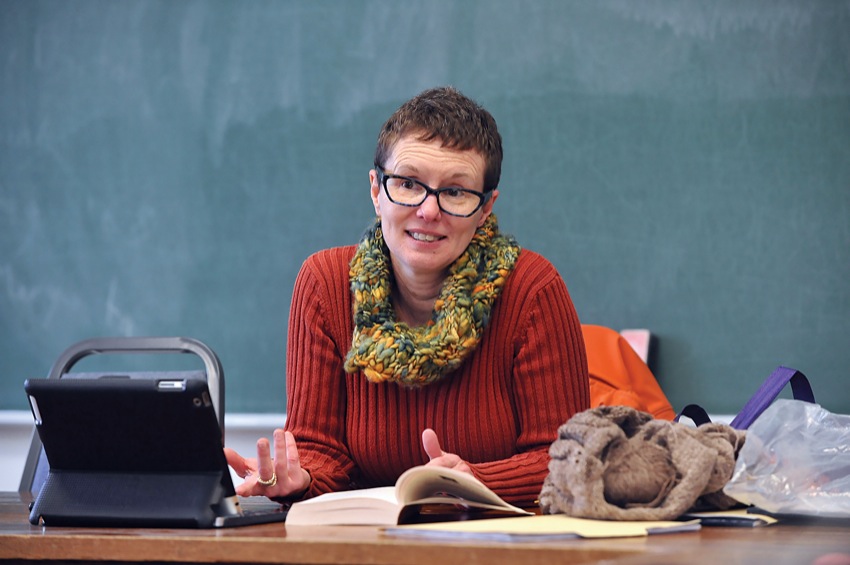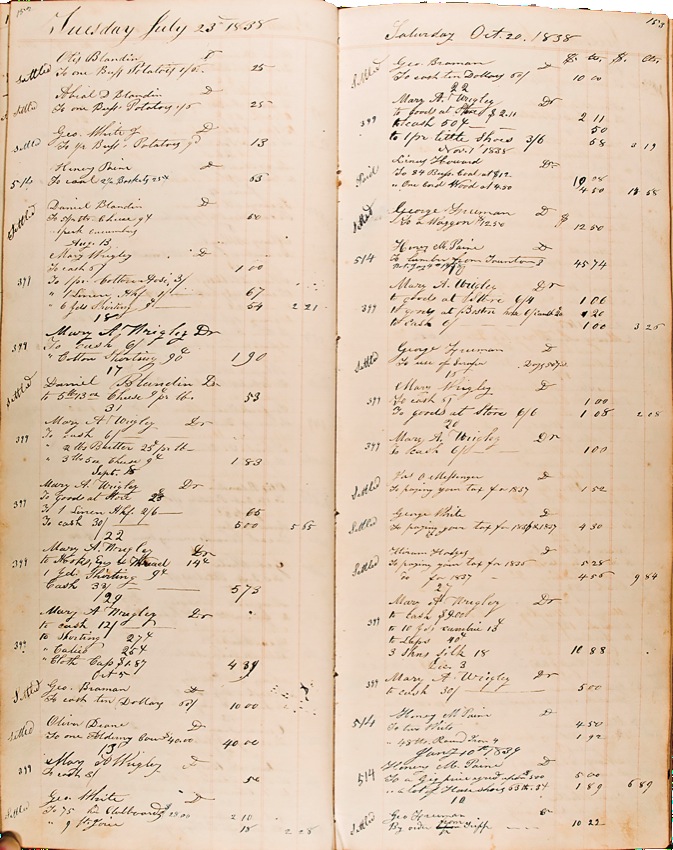Transforming history

Historical account books and financial ledgers contain rich insights into both daily life and long-term economic trends of the past, and Associate Professor of History Kathryn Tomasek hopes to make it easier for scholars to unlock those insights.
With support from a newly awarded grant, Professor Tomasek is teaming up with colleagues in Germany and Austria to develop best practices for digitizing financial records in ways that will facilitate computer analysis of the data.
The international team’s work will be supported by the U.S. National Endowment for the Humanities and the German Research Foundation (DFG), through a program designed to encourage collaborative projects between American and German scholars.
Interest in the collaborative grant program was very strong, according to NEH officials. Thirty-nine proposals were submitted to the joint initiative; six were funded, reflecting a 15 percent funding ratio. In the past, this program has typically received approximately 20 proposals.
Tomasek received a grant of nearly $60,000 to support her work on the effort. Her German counterparts Professor Mark Spoerer of the University of Regensburg and Professor Georg Vogeler of the University of Graz received parallel funding from DFG.
A recognized leader in digital humanities, Professor Tomasek works in the emerging field of text encoding of financial records–transforming accounts into machine-readable data through the use of coding that facilitates computer analysis.
“Account books can illuminate the daily life of a community,” Professor Tomasek said. “And if they are transcribed and marked up in ways that allow comparison, we can observe trends in relation to a variety of matters, including diet, rental patterns, construction materials, and practices of consumption.”

Wheaton students and library staff have collaborated with Professor Tomasek on such efforts for more than a decade through the college’s Digital History Project. Since 2009, students enrolled in the junior colloquium in history–a course focused on research methods–have worked on transcribing and coding entries from Laban Morey Wheaton’s daybook, which contains account data from 1828 to 1859.
“During the fall 2014 semester, students found precisely the kind of information at the local or granular level that historians and other scholars will be able to research at the macro level if more accounts are transcribed and marked up in a standard way,” she said. “They found transactions focused on beef, potatoes, apples, and dairy products which led them to find historical articles about diet in nineteenth-century New England.”
The Wheaton students’ work with Professor Tomasek also represents an important step in making this information available to researchers beyond the campus In fact, The Wheaton library’s research and instruction technologists have contributed to national efforts aimed at making digitized and encoded texts broadly accessible through an online archive, with grant support from the NEH and the Institute for Museum and Library Services.
Professor Tomasek said that the open access to information that text-encoding makes possible will “enhance transparency and verifiability of information gathered from account books.” At present, most of this material is stored in archives and is not easily accessible to other interested scholars.
“This summer, Alyssa Russell ‘16 is working with me to complete the transcriptions. She has been learning XML, TEI, and the principles of double-entry accounting,” Professor Tomasek said. “She’s a quick study!”
The resulting coded texts will be used as one of several samples by Professor Tomasek and her German colleagues as they work to set standards for best practices in the coding of financial information. This first project is expected to be the start of a longer collaborative effort that may take more than five years to complete.
Digital History Project
A team of students, faculty and staff who do history digitally, exploring original primary sources in the archives and making them accessible using the underlying language of digital media. More >>
